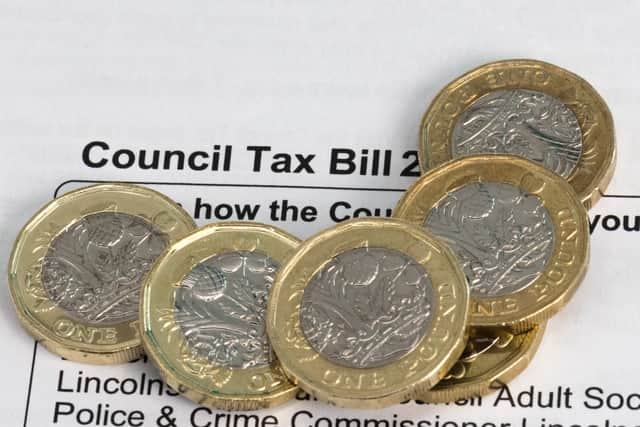Glasgow council tax 5.8% above national average, figures reveal
and live on Freeview channel 276
Data shows that people on council tax band ‘D’ in Glasgow pay £1428 - not including water and sewerage charges - while the average across Scotland for the same band is just £1347.
That means people in band ‘D’ in Glasgow are paying 5.8% more than the average Scot.
Advertisement
Hide AdAdvertisement
Hide AdPeople in Shetland pay £1206 - over £200 less than those in Glasgow, despite being in the same band. The only local authority with a higher council tax for those in band ‘D’ is Midlothian, where tax payers fork out £1443.


The data also shows that council tax in Glasgow has gone up by 14.3% since 2015 - higher than the rate of inflation (13.1%).
What is council tax and how is it set?
Council tax is a system of local taxation linked to the value of properties. It is one of the main sources of funding for councils, which provide a huge range of services including education, housing, social care, sports and leisure facilities, public health, arts and culture and road maintenance.
In Scotland properties are placed into one of eight bands from A (cheapest council tax) to H (most expensive).
Advertisement
Hide AdAdvertisement
Hide AdEach country in the UK has a nation-wide scale for assigning properties to bands based on their historical value (the price in 1991 in Scotland).
But local councils – and other authorities funded by council tax, such as police and fire services – then set the fees that they charge for each band.
Comment Guidelines
National World encourages reader discussion on our stories. User feedback, insights and back-and-forth exchanges add a rich layer of context to reporting. Please review our Community Guidelines before commenting.
